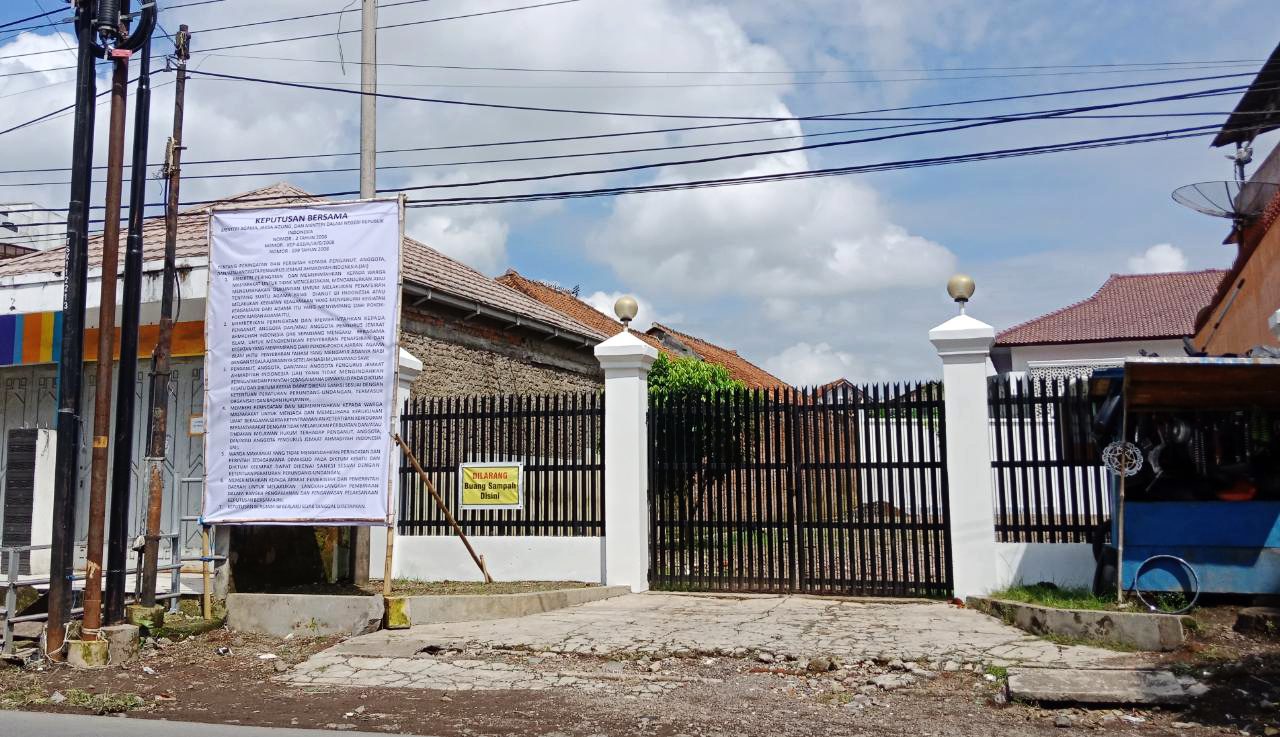
Responding to authorities in West Java issuing a decree banning a local Ahmadiyya community from using their mosque, Amnesty International Indonesia Executive Director Usman Hamid said:
“The decision to block this Ahmadiyya community from using their mosque was made on discriminatory grounds and without any consultation. It’s just the last example of the authorities in Indonesia targeting Ahmadis purely for their religious beliefs.
“This local decree should be withdrawn immediately, and the community allowed to worship in their mosque as they please.
“Claiming this ban was designed to prevent further unrest is a shocking derogation of the authorities’ responsibility. It’s also against the law and in violation of Indonesia’s human rights obligations. The government’s job is to keep everyone safe, including the Ahmadis.
The authorities must stop this culture of discrimination and encourage all people to practice their faith freely.”
Background
On 4 April 2020, local authorities of Tasikmalaya, West Java, including public prosecutors, the police and the military visited the Ahmadiyya community in Singaparna. They gave a copy of joint decree signed by Tasikmalaya Regent and the three authorities on 27 January 2020 ordering the Al-Aqso mosque be permanently shut and banning any religious activity there. The decree cites the local Muslim majority’s disapproval of the Ahmadis’ religious practices and the risk of larger protests against the Ahmadis. According to the decree, the mosque does not meet the requirement to qualify as a place of worship.
The Ahmadiyya are a religious group who consider themselves part of Islam. However, other Muslim groups say they do not adhere to the accepted belief system.
Members of the Ahmadiyya religious minority have faced discrimination, intimidation, destruction of property and threats in various parts of Indonesia. Their beliefs have been described as “deviant” by the government through a 2008 Joint Ministerial Decree. As a result of this decree, a number of regions have issued policies that restrict, or even totally ban, religious activities by the Ahmadis.
Amnesty International has repeatedly called for Indonesian authorities to repeal the Join Ministerial Decree on the Ahmadiyyah community and allow them to practice their faith free from discrimination and fear of intimidation and attack.
Despite their legal status as a formal organization in Indonesia, members of Ahmadiyya communities across the country have faced challenges, including difficulty in obtaining identity cards from their respective local administration.
Article 18 of the International Covenant on Civil and Political Rights (ICCPR), which is binding on Indonesia, guarantees that everyone has the right to freedom of thought and belief, conscience and religion; this right includes the freedom to change one’s religion or belief, freedom from coercion which would impair the right to have or to adopt a religion or belief, and the freedom, either individually or in community, with others and in public or private, to manifest one’s religion or belief in teaching, practice, worship, and observance. Only the final right, to manifest one’s religion or beliefs, may be limited by the state, but only if respective laws, policies or practices are provided for by and applied in accordance with the law, pursue a legitimate aim, and are necessary and proportionate to that aim. They must also be non-discriminatory and subject to review.
